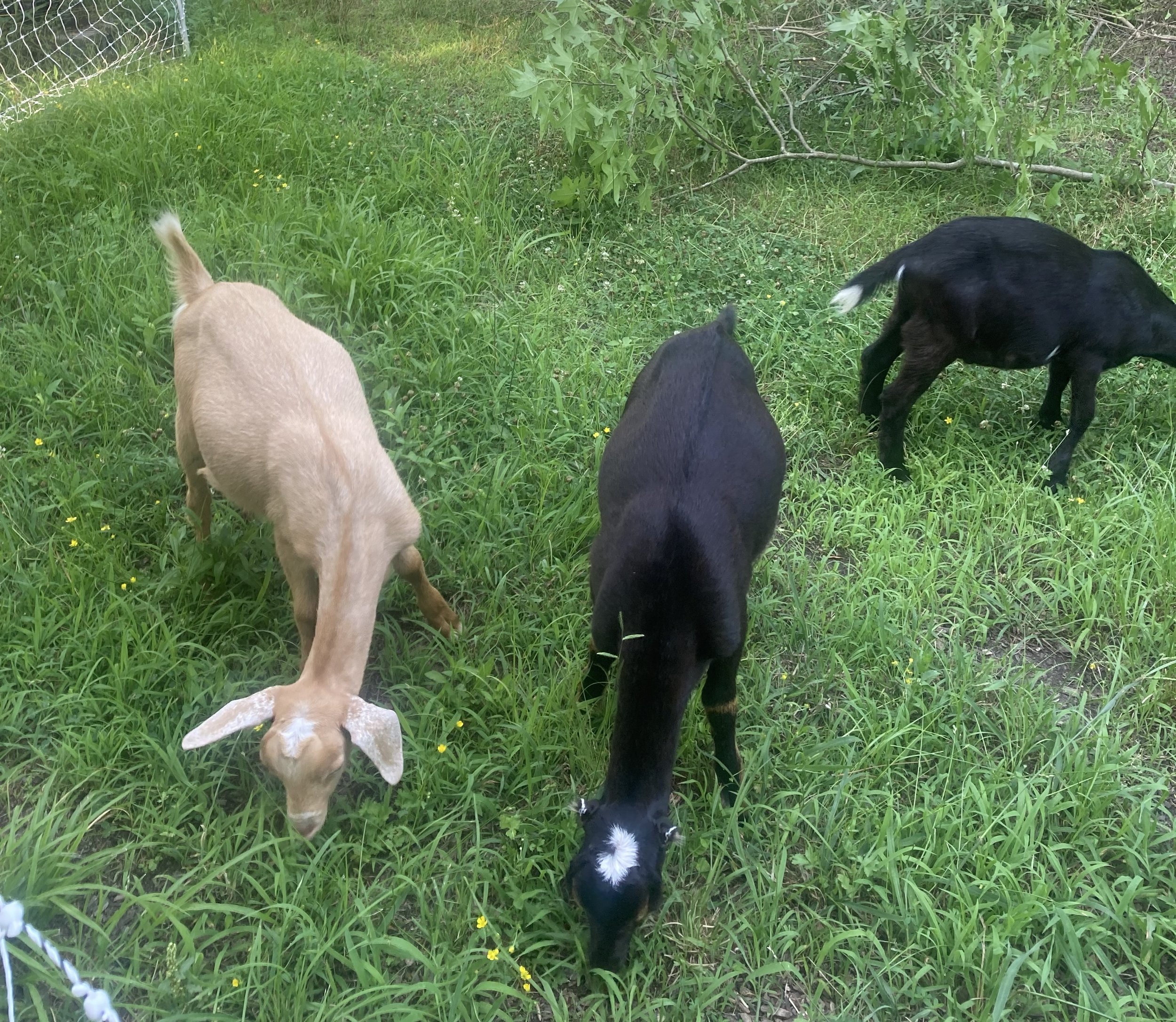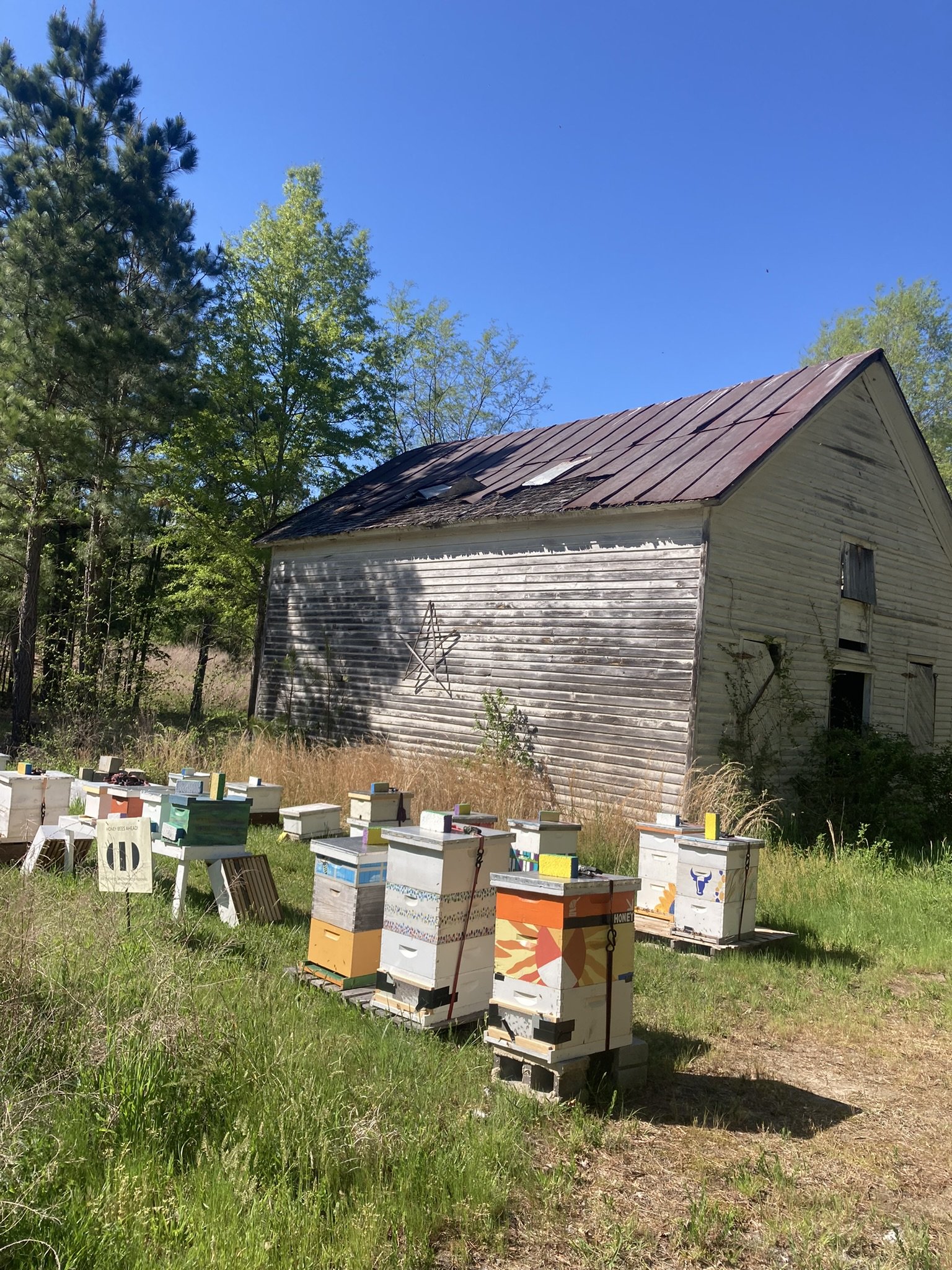
Land History
Our family’s story at Panther Creek Forest Farm begins in 2014 and our adventures since then can be found in the sections below. However, before this piece of land was farmed by our family it had a long history as a tobacco farm run by the Holloway family.
Prior to the Holloways, this land was at the important crossroads of the Fishdam Road and the Neuse River. When the Neuse River was dammed in the 1970’s to create Falls Lake, much of the Holloway family farm was lost. Many significant farms, historical sites, and artifacts now sit at the bottom of the lake (including much of Panther Creek which was once our farm’s boundary).
The tributaries of the Neuse River can still be enjoyed today in east Durham; Panther Creek, Ellerbe Creek, and the Eno River. We applaud the work of the Eno River Association, Ellerbe Creek Watershed Association, the Triangle Land Conservancy, Friends of the Mountains to Sea Trail, Durham County Soil & Water Conservation District, and Sound Rivers who are all working to protect land and water resources in this sensitive watershed of the Upper Neuse River basin. The ecological history of this land can be seen in these water bodies and in the surrounding fields and forests that border our family farm. We seek to honor these histories by practicing regenerative farming practices that clean water, build soil, filter air, store carbon, and create wildlife sanctuaries.
This area of east Durham also has a rich human history on the land. We would like to honor the black and indigenous farmers that lived, and still live, on this land and in the surrounding region. This area of east Durham County are the ancestral homelands of the Lumbee, Skaruhreh/Tuscarora, Eno, Shakori, and the Occaneechi Band of the Saponi Nation. We honor the legacy of this land and its First Nation peoples; past, present, and future. Over 30,000 acres of this region of Durham County was also once part of the Stagville Plantation (which is now the Stagville State Historic Site).
We honor the legacy of the many families who experienced enslavement in this area and uplift their stories. We support BIPOC farmers in our community and encourage all of our visitors to do the same. We are committed to anti-racism work and dismantling systems of oppression in ourselves and within our community. We welcome all members of our community to this special piece of land. To connect with other organizations in our area doing this important work, please visit our resource page.
Our Story
The story of Panther Creek Forest Farm began in March 2014, when Eliza & Jacqueline Lawdley purchased farmland in east Durham County with Leigh & Clay Bordley (Eliza’s amazing parents). The land immediately became a place where family and friends would gather on weekends and for special occasions. In 2014, the “farm” was 28-acres of dense loblolly pine and sweetgum. At the time, the previous owners of the property had placed the land into commercial forestry. This meant that over many years, the timber on the land had been clear-cut several times. Sadly, by 2014, the property had become degraded and neglected. The soil was badly eroded, there were mountains of trash in the woods, and there was little wildlife in sight.
The ecological health of the forest was also in bad shape. Acres upon acres of pine trees grew tightly packed together as a monocrop. One of the earliest observations that was made about the land was how strangely quiet the forest was- with almost no bird or insect activity! It was clear almost immediately how much attention this piece of land would need to bring it back into ecological health. The land was already beginning to heal itself in 2014, but we set our minds to speeding that process along!
The Party Barn in 2014, prior to renovations.
Since the early years of thinning pine trees, renovating collapsing barns, and hauling piles of trash to the dump, our family has been hard at work bringing ecological health back to the land. Each year our family practices agroforestry techniques across all 28 acres of the property. Agroforestry is an ancient set of farming practices that have been utilized by indigenous people in the piedmont region, and around the world, for thousands of years. Many indigenous communities continue to practice agroforestry here in North Carolina on a variety of scales.
Agroforestry, as defined by the USDA National Agroforestry Center, “is the intentional integration of trees and shrubs into crop and animal farming systems to create environmental, economic, and social benefits.” It consists of 5 broad categories of farming practices: alley cropping, forest farming, silvopasture, windbreaks, and riparian forest buffers. Learn more about how we practice these five techniques at Panther Creek on our farm’s social media pages or by visit The Farm page here on our website.
Each year our family learns more from the land than we could have ever imagined. It is an honor to be farming for our community and we look forward to seeing you out at Panther Creek someday soon!





